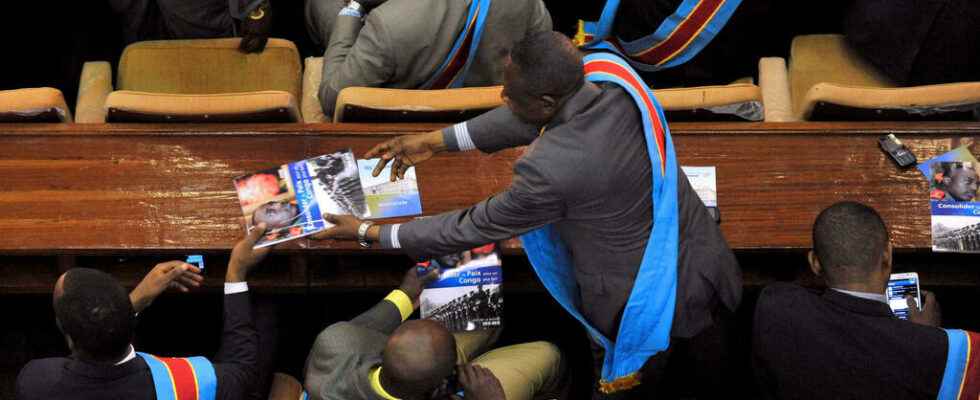The study group on the Congo (GEC) affirms in a report on Tuesday that more than 210 deputies do not stay in their electoral constituencies during the traditional parliamentary holidays.
With our correspondent in Kinshasa, Pascal Mulegwa
In the DRC, the three-month parliamentary recess ends on March 14. Deputies are supposed to take advantage of this period to visit their regions in order to inquire about the economic, cultural and socio-political situation of their constituency. Subsequently, they produce a report on the difficulties faced by the populations.
But the “Tatalala” project of the Congo Study Group (GEC) found that this was not always the case. The organization, which was able to consult documents on the parliamentary holidays of the last two years, reveals that more than 40% of the deputies do not make their reports available to the National Assembly. The reason: many of them do not stay in their constituencies, preferring to spend their holidays either in Kinshasa or abroad.
According to the report of the study group on the Congo, only 150 of the 181 electoral districts were the subject of a report of parliamentary activities. In other words, 31 others were not concerned because, very often, none of their deputies went there.
The majority of the constituencies abandoned by their elected officials are located in the capital Kinshasa, the regions of the former province of Bandundu and those of the North-West, in the former Equateur and Kasaï. The territory of Tshikapa, in the province of Kasai, is the constituency most neglected by its deputies, says the barometer of parliamentary activity. None of its seven deputies has made a report.
But the bad students are everywhere, whether among the former presidents of the National Assembly, the members of the offices or even the deputies who have become ministers.
Some deputies explain to our correspondent Pascal Mulegwa the fact that they are “tired”, because their recommendations are never taken into account. Others report the isolation of their constituencies resulting in the high cost of their travel, while the Assembly does not provide for expenses. An argument that does not stand up for the case of Kinshasa. Out of 55 deputies from the capital, only 27 have filed their report.
